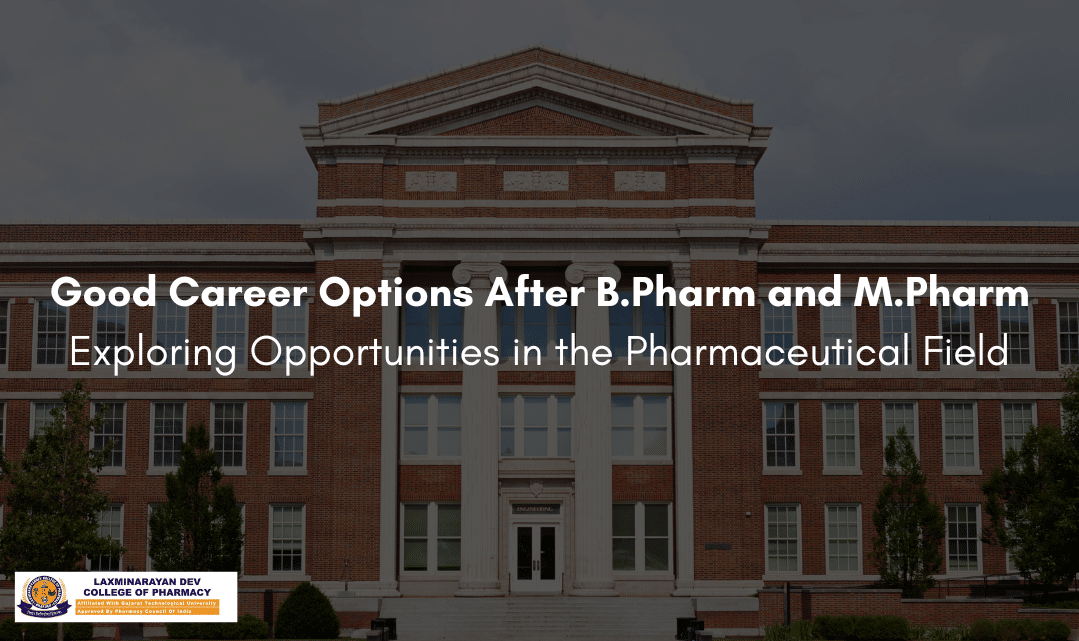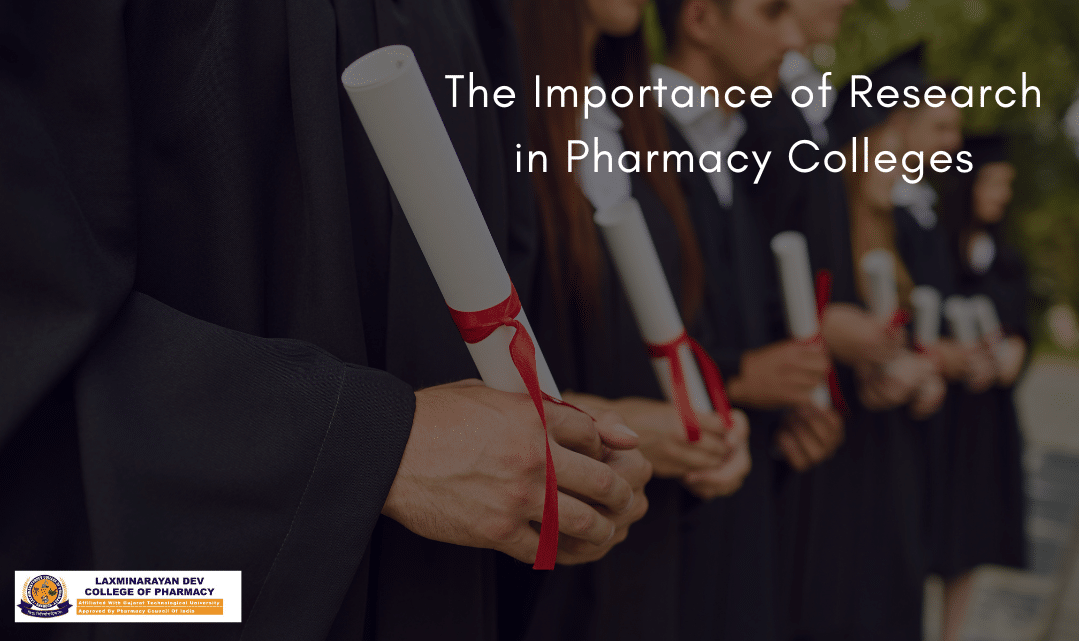
The pharmaceutical industry is a dynamic and ever-evolving sector that offers a myriad of career opportunities for graduates holding B.Pharm and M.Pharm degrees. With the increasing demand for healthcare services, the need for skilled professionals in this field has never been greater. If you are wondering about the best career options after completing your B.Pharm or M.Pharm, this guide will provide you with comprehensive insights into some of the most promising paths you can pursue.
1. Pharmaceutical Industry Jobs
One of the most common career paths for B.Pharm and M.Pharm graduates is working in the pharmaceutical industry. Here, you can explore various roles such as:
- Quality Control (QC) Analyst: QC analysts ensure that the drugs produced meet the required quality standards. They conduct various tests and inspections to maintain product quality.
- Quality Assurance (QA) Officer: QA officers are responsible for ensuring compliance with regulatory standards and maintaining documentation for the manufacturing process.
- Formulation Development Scientist: These professionals work on developing new drug formulations, optimizing existing ones, and ensuring their efficacy and safety.
- Production Manager: Overseeing the manufacturing process, production managers ensure that production targets are met while maintaining quality standards.
- Regulatory Affairs Specialist: Regulatory affairs specialists ensure that all pharmaceutical products comply with regulations set by authorities like the FDA, EMA, etc.
2. Clinical Research
Clinical research is a vital component of drug development, making it a lucrative career option for those with a B.Pharm or M.Pharm degree. Careers in clinical research include:
- Clinical Research Associate (CRA): CRAs monitor clinical trials, ensuring they comply with regulatory requirements and protocols.
- Clinical Data Manager: Responsible for collecting, processing, and analyzing data from clinical trials.
- Pharmacovigilance Officer: This role involves monitoring the effects of drugs post-launch, ensuring patient safety and reporting adverse effects.
3. Hospital and Community Pharmacy
For those who prefer direct interaction with patients, working as a pharmacist in hospitals or community settings is a rewarding option. Roles include:
- Hospital Pharmacist: In hospitals, pharmacists dispense medications, counsel patients on drug use, and collaborate with healthcare teams to ensure optimal patient outcomes.
- Community Pharmacist: Operating in retail pharmacies, community pharmacists provide medications, health advice, and support to the public.
4. Academia and Research
If you have a passion for teaching and research, academia offers numerous opportunities:
- Lecturer/Professor: With an M.Pharm degree, you can teach at universities or colleges, shaping the next generation of pharmacists.
- Research Scientist: Conduct research to develop new drugs, improve existing therapies, and contribute to scientific knowledge.
5. Entrepreneurship
For those with a business mindset, entrepreneurship in the pharmaceutical industry can be highly rewarding. Some entrepreneurial ventures include:
- Pharmacy Chain Owner: Establish and run a chain of retail pharmacies.
- Pharmaceutical Manufacturing: Start your own pharmaceutical manufacturing unit, producing generic or branded drugs.
- Pharma Consultancy: Provide consultancy services to other pharmaceutical companies, offering expertise in regulatory affairs, marketing, or product development.
6. Regulatory Affairs and Government Sector Jobs
The government sector also offers lucrative opportunities for B.Pharm and M.Pharm graduates. Some of these roles include:
- Drug Inspector: Ensuring the safety and efficacy of drugs sold in the market by conducting inspections and enforcing regulations.
- Pharmaceutical Regulator: Work with government bodies like the FDA, overseeing the approval and monitoring of pharmaceutical products.
- Public Health Officer: Contribute to public health initiatives, working on disease prevention, health promotion, and policy implementation.
7. Sales and Marketing
Pharmaceutical sales and marketing offer dynamic career paths for those with strong communication skills:
- Medical Representative (MR): Promote pharmaceutical products to healthcare professionals and ensure product availability in the market.
- Product Manager: Oversee the marketing strategies for specific drugs, working closely with sales teams to drive product success.
8. Healthcare Informatics and Pharmacoeconomics
With the rise of digital healthcare, roles in healthcare informatics and pharmacoeconomics are emerging as lucrative options:
- Health Informatics Specialist: Combine your pharmaceutical knowledge with IT skills to improve healthcare services and patient care through data management.
- Pharmacoeconomics Analyst: Analyze the economic impact of pharmaceutical products, helping companies make informed decisions about drug pricing and reimbursement.
Conclusion
The pharmaceutical industry offers a vast array of career opportunities for B.Pharm and M.Pharm graduates. Whether you are interested in research, patient care, academia, or business, there is a path that aligns with your skills and interests. As the healthcare sector continues to grow, so do the prospects for pharmaceutical professionals, making this an exciting and rewarding field to be a part of.
For those seeking to make a mark in this dynamic industry, Laxminarayan Dev College of Pharmacy (LDCP) provides the foundation you need to excel. With a curriculum designed to meet industry standards and experienced faculty guiding you every step of the way, your future in the pharmaceutical field starts here.


